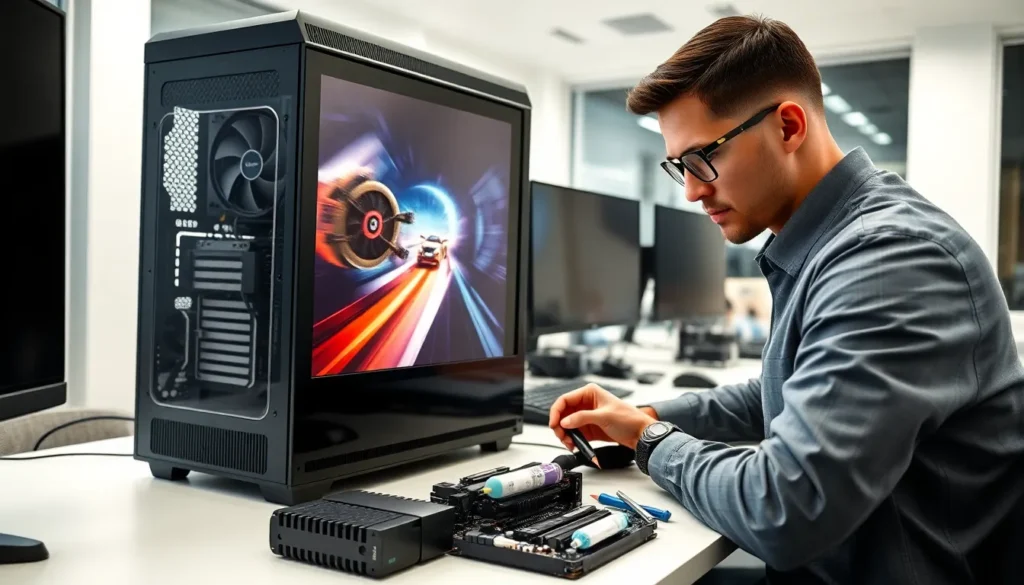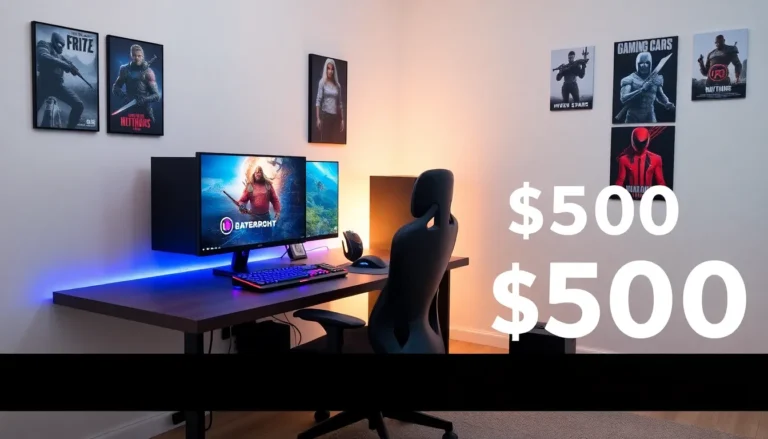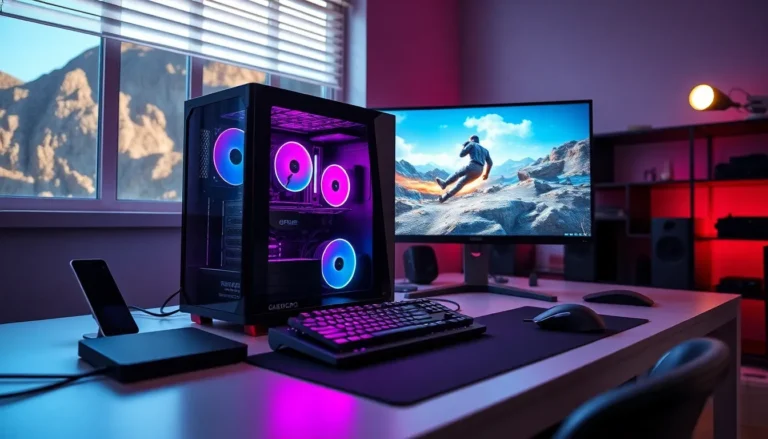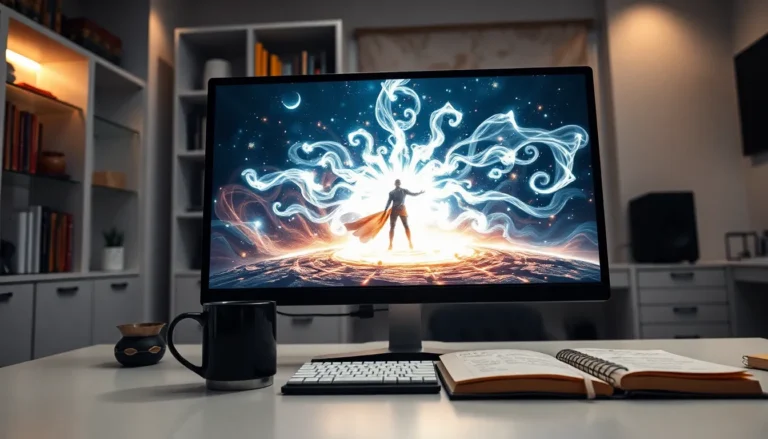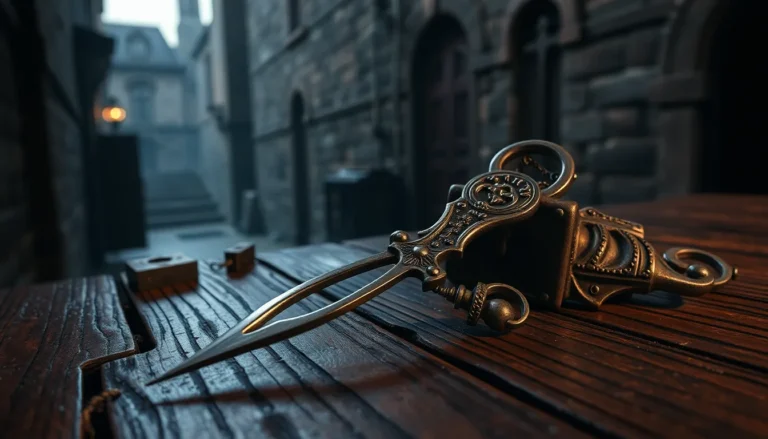Table of Contents
ToggleImagine you’re deep in a gaming session, adrenaline pumping, when suddenly, freeze. Your PC halts, leaving you staring at a frozen screen longer than your boss takes in a coffee break. What’s happening? PC freezes during gaming can ruin the best-laid plans for victory. This frustrating phenomenon has various causes, but fret not. Jump into this guide to explore the reasons behind those pesky freezes along with practical solutions that keep your gaming adventures smooth and unstoppable.
Common Causes of PC Freezes During Gaming

Hardware Issues
Often, the culprit behind freezes starts with hardware problems. Maybe the graphics card isn’t delivering enough power, or the RAM is the wrong type for the motherboard. Also, failing components, such as hard drives or even the power supply unit itself, can cause these frustrating interruptions.
Software Conflicts
Software conflicts can wreak havoc on gameplay. Running multiple applications while gaming can hog CPU and RAM resources. Sometimes, even antivirus programs decide to perform scans right in the middle of an intense gaming session, leading to unexpected freezes that leave gamers hanging.
Overheating Components
Overheating is one of the sneaky villains in this story. When the CPU or GPU runs too hot, it can throttle its performance to cool down, resulting in a frustrating freeze. Dust buildup inside the case can exacerbate the issue, so ignoring air circulation can swiftly lead to problems.
Driver Problems
Let’s not overlook drivers. Outdated or corrupted graphics drivers may not efficiently communicate with your hardware. When the latest game requires modern drivers and your system is stuck in the past, prepare for some stutter and freeze.
Insufficient Resources
Gaming demands a significant amount of resources. Insufficient RAM or a weak CPU can lead to performance issues that present as freezes. Many games have recommended requirements, and ignoring those can tip over the balance, causing the dreaded freeze without warning.
Troubleshooting Steps for Freezing Issues
Checking System Requirements
The first troubleshooting step is checking whether the game meets your PC’s compatibility requirements. If your components are below the recommended specs, consider upgrading your setup instead of forcing a game to perform on technology that simply cannot handle it.
Monitoring Temperatures
Next, monitoring temperatures is vital. Many PCs come with software that tracks component temperatures. Ensure your CPU and GPU stay within safe operating limits. If the temperature exceeds the norm, cooling systems might need a review.
Updating Drivers
Updating drivers should be a priority. Game developers frequently release patches and updates to enhance compatibility and performance. Regularly updating graphics drivers can significantly improve gaming performance and reduce freezing occurrences.
Disabling Background Applications
Removing distractions is crucial. Close unnecessary applications that run in the background. Not only do they take up precious memory, but they could also cause interference that disrupts gaming. A seamless gaming experience requires a clean environment.
Running Diagnostics Tools
Running diagnostics can help pinpoint the problem. Use built-in tools or third-party applications to monitor hardware performance. These tools may identify hardware malfunctions, letting users address them before they lead to disaster.
Prevention Tips to Avoid Future Freezes
Regular Maintenance
Regular maintenance keeps systems in shape. Dust out hardware to prevent overheating, and consider thermal paste replacement for the processor every couple of years, ensuring optimal heat transfer.
Upgrading Hardware Components
Upgrading hardware can also work wonders. Increasing RAM or investing in a more powerful GPU or CPU can drastically improve gaming performance. Systems age, and evolving technology often leads to significant advancements that enhance gameplay experiences.
Optimizing Game Settings
Optimizing game settings can be the smartest move a gamer makes. Adjusting graphics settings to match hardware capabilities can alleviate pressure on the system. Reducing resolution or turning off certain graphics features can keep gaming fluid and enjoyable.
Using Cooling Solutions
Finally, employing cooling solutions makes a difference. External cooling fans or even liquid cooling systems can help keep temperatures in check, allowing hardware to perform without fear of freezing.

